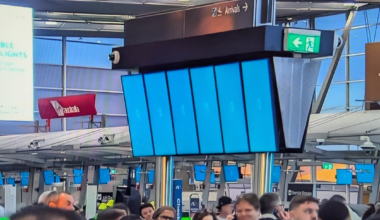The Windows 11 operating system has been released by Microsoft
At a virtual event, Microsoft launched Windows 11, its “next generation” operating system.
Android apps will be able to run on the Windows desktop using the new software.
Panos Panay, the product manager, promised smaller, faster security updates, which he stated will happen in the background, which is a major gripe among Windows users.
Like on a Mac, Windows 11 will allow users to set up many computers for work, home, and gaming.
Microsoft claims that Windows 10 is currently installed on 1.3 billion devices.
Next week, an early preview version of the new system will be made available to app developers.
Existing Windows 10 customers will be able to download Windows 11 for free, while some machines will not meet the minimum requirements. A minimum of 64 gigabytes of storage and 4 gigabytes of RAM are required.
The “Start” button has been moved to the bottom-centre of the screen, rather than the left-hand side, as a cosmetic modification.
Furthermore, Windows 11 will be more tightly integrated with Microsoft’s Teams collaboration platform. Pre-installed will also be Xbox Titles Pass, a subscription program with access to hundreds of games.
As rival Apple continues to face concerns over its business model, the tech giant announced it would split more income from its app store with creators and developers.
Microsoft stated when Windows 10 was released in 2015 that it would be the final version of the operating system. Windows 10 will be phased out in 2025, according to Microsoft.
Although Microsoft CEO Satya Nadella praised the launch as “a big milestone in the history of Windows,” CCS Insight analyst Geoff Blaber claimed it was not a “revolutionary move.”
“Rather than introducing the huge changes seen with its predecessor, Windows 11 is an iterative version that pinpoints where Windows needs greater ambition,” he said.
“Microsoft’s ultimate goal is to ensure that the upgrade from Windows 10 to Windows 11 brings big enough improvements to counterbalance any objections.”
According to JP Gownder, principal analyst at Forrester, the new operating system is based on the code of Windows 10, which should eliminate upgrading issues like those observed with Windows Vista in the past.
“These user-friendly allusions to the past, though,” he noted, “are a double-edged sword.”
“They’re helpful for keeping your experience consistent, but they make you wonder what the 11 actually means. Is this, in fact, a feature-rich Windows 10 update rather than a full-version release?”




